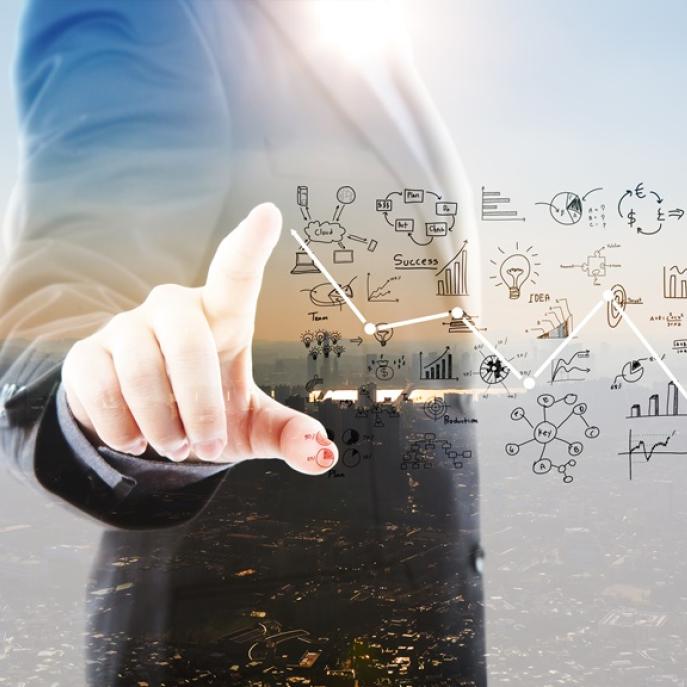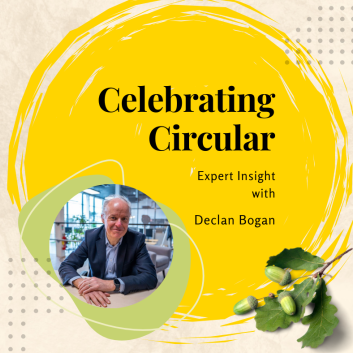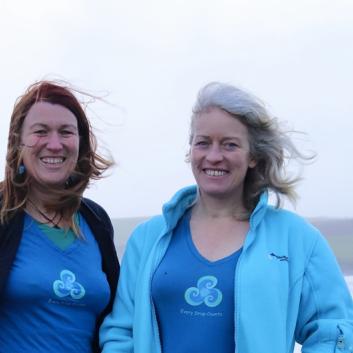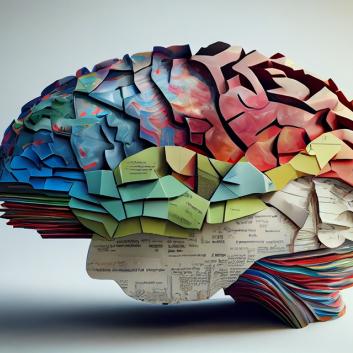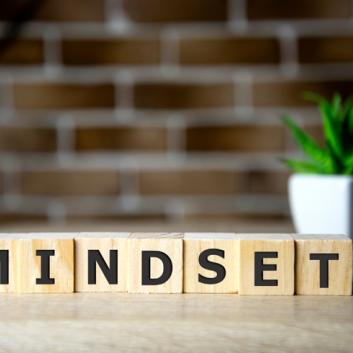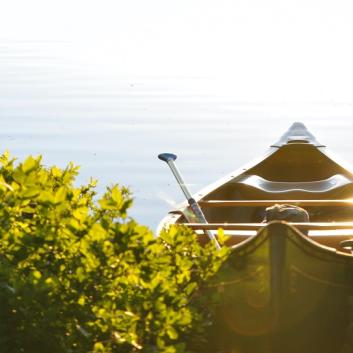Mindset is everything: How to approach systemic change to accelerate climate innovation?
We often hear that `we need systemic change` to address the climate crisis, which sounds like a smart answer, but how should we actually do that?
Mike Townsend, Founder and CEO of Earthshine Group, spent more than a decade searching for the answer and working with organisations to adopt changes on a systemic level to advance sustainability initiatives.
In addition to running the Earthshine Group, Mike also serves on advisory boards and teaches courses on Sustainable Development, Sustainable Business Strategy, and The Business of Change.
He is an author and editor of various books, such as Reframing the Game or The Quiet Revolution, and a regular contributor to Huffington Post, Edie.net, The Guardian, Medium, and others.
You work a lot with universities and educational institutions. What is your impression of how the next generation is facing the climate crisis?
Since I have been working with educational institutions, I have noticed an increasing amount of anxiety among students each year over the last decade based on genuine concerns over the climate crisis and how this will affect everybody’s lives and worries over the state of national and global politics, and the rise of far-right extremism.
It really is a tough and frustrating time, especially as too many of our leaders are falling short of what we need right now.

Yet, we must re-find hope and reclaim agency to act and create a better future.
What I can see is that many students come to Copenhagen from other countries to capture learning, insights, and practical examples that they can take with them and to try to make some form of meaningful change back home.
Many of them are asking, what is my place in this crazy world? How can I make it better?
We take learnings from real-life cases, such as the renewable energy transformation of Ørsted, a Danish energy company that made most of its money from fossil fuels but changed course and became the world’s largest producer of offshore wind energy by 2019.
But we can also look at city developments, like the green neighbourhoods of Østerbro, public transit solutions, cycling infrastructure and urban planning in Copenhagen, or new circular economy business models popping up in Malmö.
Based on their learning experiences, some are getting involved in climate and political activism, while others are looking to become the next generation of business leaders to change the way things are done in commerce.
Some are looking deeply into systems change, particularly the dysfunctional aspects of capitalism, to find a better way.
All approaches are “good work” and help move the dial, particularly when joining forces with other like-minded groups. However, we need to be mindful of timing.
The best way to go is to explore the alignment between your own passions and interests, with your own specific skills and insights, and the opportunities you see to make a real difference: find your own ‘sweet spot’, get the support you need, join up with others in your space, and go for it.
We need this change to happen right now. The decisions we make today will determine the course of the next 30 years and beyond.
By working with various organisations in different cultures, have you noticed a common dominator or distinctive differences when it comes to adopting sustainability?
If we try to inject sustainability thinking into the wrong cultural context, we will not get very far.
So, it’s essential to get the right values, mindsets and behaviours in place if we are to have any chance of integrating sustainability thinking and solutions in the right way.
There are key attributes characterise a culture where sustainability can have a soft landing, in my opinion:
- Honesty, coupled with the recognition of where we are. Here, we need leaders who are able to face the truth that business as usual is dead.
- A mindset of transformation mixed with active curiosity - practically being open to finding new ways of doing things.
- Be open to genuine collaboration in developing radical, new solutions, recognising that no single actor can develop and deliver the necessary changes we need to see.
- Foster a culture of courageous leadership and being unafraid to experiment and try bold new approaches.
You designed a `model for transformation` to enable systemic change. How does that work?
We developed a model for transformation over the last 15 years based on a comprehensive theory of change. Conventional theories of change tend to be inadequate - often relying on `nudging` and bottom-up change initiatives - lacking impact, penetration and pace.
Our model is designed to help people and organisations navigate risks, opportunity and complexity in a more efficient way. We call this our ‘Star System’ – a multi-level approach to help our clients navigate transformational change, starting with recognising that we cannot become a fully sustainable enterprise in isolation.
For example, we cannot become truly ‘circular’ if we don’t engage with our customers and supply chains and develop genuine business model innovation.
We also need to engage with policymakers to develop appropriate and supportive policy architecture, as well as drive the necessary changes within our system of economy.
Everything changes! And, most likely, we’ve never experienced this level of change before. This means that we’ll also need to look at developing and enhancing our capabilities so we can deliver more successful transformations.
Capability development is, therefore, at the heart of our model.
However, not everyone is ready to engage in this holistic way, with some falling back on the false notion of “easy sustainability” based on superficial initiatives and incremental change.
What is your experience with bigger-scale projects you have worked on? What are the typical challenges, and how can you achieve tangible results?
Looking at key actors to make change happen, you will find no shortage of challenges.
Will politicians, worried about their short-term political and election cycles, fully engage when reducing consumption is hardly seen as a ‘vote winner’?
Will business leaders - often highly successful within a linear economy - adapt their business models and overcome the inertia to change?
Will banks and investors lacking real incentives reboot their expectations for financial and investment success in the twenty-first century, let alone the need for all of us citizens to recalibrate our own views on what the ‘good life’ can look like in a more sustainable world?
The starting point is all about mindset, such as shifting from being a passive consumer towards being an active citizen.
For example, our Sustainability as a Mindset programme is all about developing ‘Both+And’ thinking, which enables you to see past false binary choices such as sustainability vs. economy and look for solutions that are not exclusive - find a new `sweet spot` and developing sustainable solutions that also work commercially.
Our current definition of “success” in life has become somewhat, perversely, interwoven with our buying and consumption habits as an outward display of our status and achievement.
How can you present and embrace sustainability as a road to innovation?
On current terms, we cannot simply hope to “comply” our way out of the climate crisis.
Authentic sustainability is the route to enhanced business performance through creating new market opportunities, de-risking our business models, finding new ways of making sustainable income, and capturing eco-efficiency benefits, with less money spent on resources and waste, energy and carbon, and so on.
In this scenario, sustainability becomes the catalyst for positive innovation and business change.
In our courses, we take a deep-dive exploration into the businesses that demonstrate real insights, take an analytical approach and embark on live company visits so people can see, touch and question for themselves.

We also like to take participants through a real immersion in nature, getting out of their comfort zone and reconnecting with nature, self and others.
This embodied learning approach is ten times as effective as conventional training and leaves a longer-lasting, positive impact.
With each course we run, we aim to assist attendees in finding the solution that works for them while challenging their thinking.
We need to innovate like crazy and deliver transformational change.
For instance, in our Going Circular course, we are searching for new ways of making money through non-consumption and non-destructive ways, examining how the winners in this space are already doing it for real – and learning how this can be done, with the nuts-and-bolts of new business models.
Ultimately, despite the scale of the challenge, the pressing time frames involved, and the pushback from dark forces, we can re-find HOPE: Through engaging in these conversations with each other, we can realise the shared actions we can take forward in resolving our common challenges.
But we do need to see more courageous leadership, taking more risks, engaging in way more authentic innovations, and daring to fail, learn and try again.
With the right mindset, everything is possible!
Headline image by Freepik






